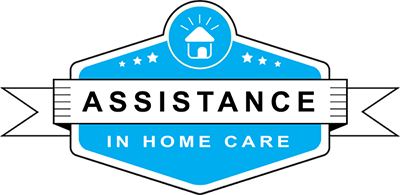ALS
Amyotrophic Lateral Sclerosis
Caregiver Assistance Tips
- Patience will be very important when caring for someone with this disease. A patient may need more time to respond to questions and requests.
- It will be important in ALS care to offer assistance with mobility such as standing up or lying down.
- It is important to modify foods to make for easy consumption. Make sure the person receiving care is sitting up right and food is properly processed.
Information
ALS, or Amytrophic Lateral Sclerosis, is a progressive neurodegenerative disease that affects nerve cells in the brain and spinal cord.
There are two different types of ALS, sporadic and familial. Sporadic which is the most common form of the disease in the U.S., is 90 – 95 percent of all cases. It may affect anyone, anywhere. Familial ALS (FALS) accounts for 5 to 10 percent of all cases in the U.S. Familial ALS means the disease is inherited. In those families, there is a 50% chance each offspring will inherit the gene mutation and may develop the disease. French neurologist Jean-Martin Charcot discovered the disease in 1869.
Importantly, there are significant devices and therapies that can manage the symptoms of ALS that help people maintain as much independence as possible and prolong life. It is important to remember that ALS is a variable disease; no two people will have the same journey or experiences. There are medically documented cases of people in whom ALS ‘burns out,’ stops progressing or progresses at a very slow rate. No matter what your individual course or situation may be, Assistance In Home Care is here to help with ALS care.
Quick Facts from ALSA.org
ALS is not contagious. It is estimated that ALS is responsible for nearly two deaths per hundred thousand population annually.
Approximately 5,600 people in the U.S. are diagnosed with ALS each year. The incidence of ALS is two per 100,000 people, and it is estimated that as many as 30,000 Americans may have the disease at any given time.
Although the life expectancy of an ALS patient averages about two to five years from the time of diagnosis, this disease is variable and many people live with quality for five years and more. More than half of all patients live more than three years after diagnosis.
About twenty percent of people with ALS live five years or more and up to ten percent will survive more than ten years and five percent will live 20 years. There are people in whom ALS has stopped progressing and a small number of people in whom the symptoms of ALS reversed.
ALS occurs throughout the world with no racial, ethnic or socioeconomic boundaries. ALS can strike anyone.
The onset of ALS is insidious with muscle weakness or stiffness as early symptoms. Progression of weakness, wasting and paralysis of the muscles of the limbs and trunk as well as those that control vital functions such as speech, swallowing and later breathing generally follows.
There can be significant costs for medical care, equipment and home health caregiving later in the disease. It is important to be knowledgeable about your health plan coverage and other programs for which your may be eligible, including SSA, Medicare, Medical and Veteran Affairs benefits.
Riluzole, the first treatment to alter the course of ALS, was approved by the FDA in late 1995. This antiglutamate drug was shown scientifically to prolong the life of persons with ALS by at least a few months. More recent studies suggest Riluzole slows the progress of ALS, allowing the patient more time in the higher functioning states when their function is less affected by ALS. Click here for more information on the drug. Rilutek® (Riluzole) is manufactured by Sanofi-Aventis Pharmaceuticals, who sponsor a Patient Assistance Program that helps patients who qualify receive the drug. Many private health plans cover the cost of Riluzole. Further information on Riluzole coverage through Medicare Prescription Drug Benefit can be found in theAdvocacy pages of this website. Further, you may contact your local ALS Association Chapter or the National Office for the Patient Assistance Program resource and more information about access to Riluzole.
If you want to learn more, please follow this link to ALSA.org
